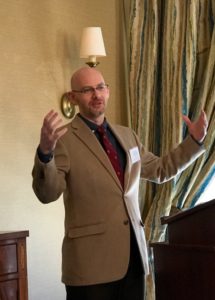 Robin Dale Hanson is an associate professor of economics at George Mason University and a research associate at the Future of Humanity Institute of Oxford University. He is known as an expert on idea futures and markets, and he was involved in the creation of the Foresight Institute’s Foresight Exchange and DARPA’s FutureMAP project. He invented market scoring rules like LMSR (Logarithmic Market Scoring Rule) used by prediction markets such as Consensus Point (where Hanson is Chief Scientist), and has conducted research on signaling.
Robin Dale Hanson is an associate professor of economics at George Mason University and a research associate at the Future of Humanity Institute of Oxford University. He is known as an expert on idea futures and markets, and he was involved in the creation of the Foresight Institute’s Foresight Exchange and DARPA’s FutureMAP project. He invented market scoring rules like LMSR (Logarithmic Market Scoring Rule) used by prediction markets such as Consensus Point (where Hanson is Chief Scientist), and has conducted research on signaling.
Hanson received a B.S. in physics from the University of California, Irvine in 1981, an M.S. in physics and an M.A. in Conceptual Foundations of Science from the University of Chicago in 1984, and a Ph.D. in social science from Caltech in 1997 for his thesis titled Four puzzles in information and politics: Product bans, informed voters, social insurance, and persistent disagreement. Before getting his Ph.D he researched artificial intelligence, Bayesian statistics and hypertext publishing at Lockheed, NASA, and elsewhere. In addition, he started the first internal corporate prediction market at Xanadu in 1990.
He is married to Peggy Jackson, a hospice social worker, and has two children. He is the son of a Southern Baptist preacher. Hanson has elected to have his brain cryogenically preserved in the event of medical death.
He spoke to the CEC on Wednesday July 18, 2018 in his talk, “The Elephant in the Brain”
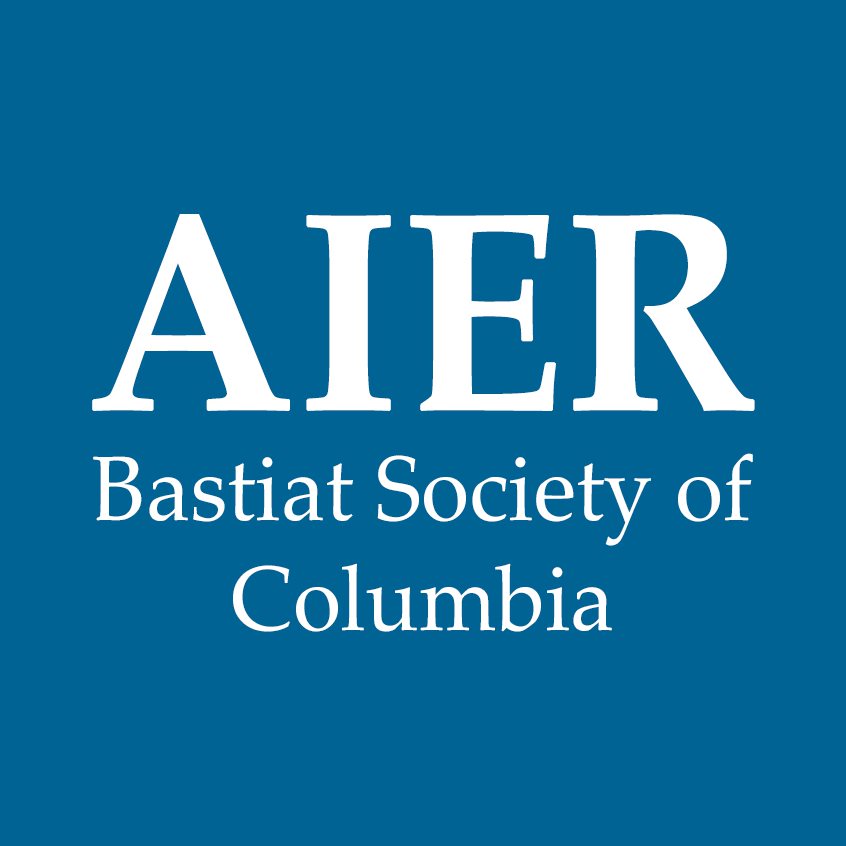 All club members and the guests at this meeting were given signed copies of The Elephant in the Brain. The club was able to get these books for the members from a grant from AIER.
All club members and the guests at this meeting were given signed copies of The Elephant in the Brain. The club was able to get these books for the members from a grant from AIER.
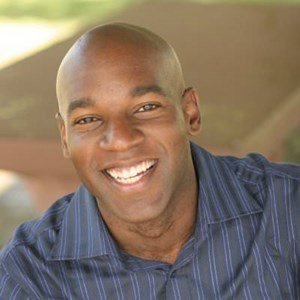 T.K. Coleman is the Co-Founder & Education Director of Praxis. He is a prolific writer and speaker with a singular mission: to awaken people to their own creative power. T.K. describes himself as an entrepreneur first and a motivator second. He’s a strong believer in the idea that he has a responsibility to face the everyday challenges of creating value in the free market if he’s going to spend his life trying to get other people to believe in free markets.
T.K. Coleman is the Co-Founder & Education Director of Praxis. He is a prolific writer and speaker with a singular mission: to awaken people to their own creative power. T.K. describes himself as an entrepreneur first and a motivator second. He’s a strong believer in the idea that he has a responsibility to face the everyday challenges of creating value in the free market if he’s going to spend his life trying to get other people to believe in free markets.
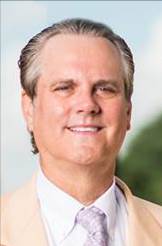 Robert L. Bradley Jr., is founder and CEO of the Institute for Energy Research (IER) of Washington, DC and Houston, Texas. He has authored eight books, the most recent of which focus on business strategies and practices in the modern US mixed economy with particular reference to energy.
Robert L. Bradley Jr., is founder and CEO of the Institute for Energy Research (IER) of Washington, DC and Houston, Texas. He has authored eight books, the most recent of which focus on business strategies and practices in the modern US mixed economy with particular reference to energy.
 Robin Dale Hanson is an associate professor of economics at George Mason University and a research associate at the Future of Humanity Institute of Oxford University. He is known as an expert on idea futures and markets, and he was involved in the creation of the Foresight Institute’s Foresight Exchange and DARPA’s FutureMAP project. He invented market scoring rules like LMSR (Logarithmic Market Scoring Rule) used by prediction markets such as Consensus Point (where Hanson is Chief Scientist), and has conducted research on signaling.
Robin Dale Hanson is an associate professor of economics at George Mason University and a research associate at the Future of Humanity Institute of Oxford University. He is known as an expert on idea futures and markets, and he was involved in the creation of the Foresight Institute’s Foresight Exchange and DARPA’s FutureMAP project. He invented market scoring rules like LMSR (Logarithmic Market Scoring Rule) used by prediction markets such as Consensus Point (where Hanson is Chief Scientist), and has conducted research on signaling. All club members and the guests at this meeting were given signed copies of The Elephant in the Brain. The club was able to get these books for the members from a grant from AIER.
All club members and the guests at this meeting were given signed copies of The Elephant in the Brain. The club was able to get these books for the members from a grant from AIER.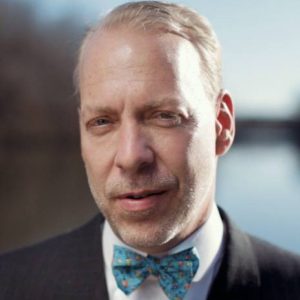 Jeffrey Tucker is editorial director of the American Institute for Economic Research, a managing partner of Vellum Capital, CLO of Liberty.me, Distinguished Honorary Member of Mises Brazil, economics adviser to FreeSociety.com, research fellow at the Acton Institute, policy adviser of the Heartland Institute, founder of the CryptoCurrency Conference, member of the editorial board of the Molinari Review, and author of eight books. In addition to 8 books, he has written 150 introductions to books and many thousands of articles appearing in the scholarly and popular press.
Jeffrey Tucker is editorial director of the American Institute for Economic Research, a managing partner of Vellum Capital, CLO of Liberty.me, Distinguished Honorary Member of Mises Brazil, economics adviser to FreeSociety.com, research fellow at the Acton Institute, policy adviser of the Heartland Institute, founder of the CryptoCurrency Conference, member of the editorial board of the Molinari Review, and author of eight books. In addition to 8 books, he has written 150 introductions to books and many thousands of articles appearing in the scholarly and popular press.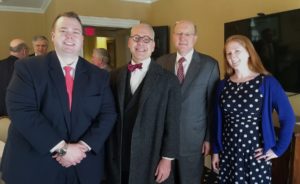
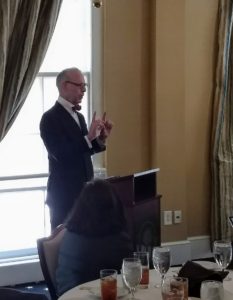
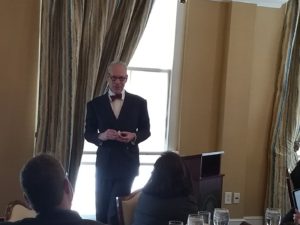
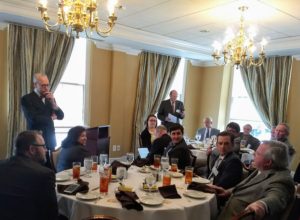
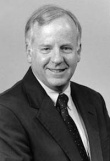 Gerald P. Dwyer is a Professor and BB&T Scholar at Clemson University. He also is an Adjunct Scholar at the Cato Institute and a Research Associate at the Centre for Applied Macroeconomic Analysis at Australian National University. He was Director of the Center for Financial Innovation and Stability and Vice President at the Federal Reserve Bank of Atlanta from 1997 to 2012 and a Professor of Economics at Clemson from 1989 to 1999.
Gerald P. Dwyer is a Professor and BB&T Scholar at Clemson University. He also is an Adjunct Scholar at the Cato Institute and a Research Associate at the Centre for Applied Macroeconomic Analysis at Australian National University. He was Director of the Center for Financial Innovation and Stability and Vice President at the Federal Reserve Bank of Atlanta from 1997 to 2012 and a Professor of Economics at Clemson from 1989 to 1999.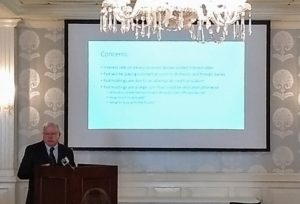
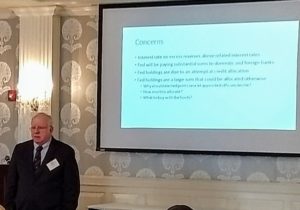
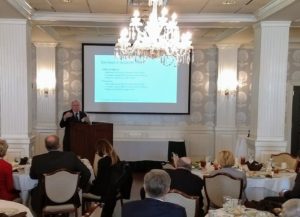
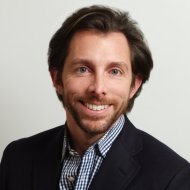 Marshall L. Stocker is an international investor recognized for his research on the relationships between political-economic policy and investment. With more than fifteen years of experience in the asset management industry, his perspective on policy has been sought by ministers, policy institutes, and investors in a wide-range of forums from decision-level policy discussions in Yemen to the syndicated Dennis Miller Radio show.Stocker has opined or been quoted in the Wall Street Journal, USA Today, New York Times, Washington Post, Financial Times, and Regulation Magazine. His seminal research “Equity Returns and Economic Freedom” was published in the Cato Institute’s Cato Journal and has been cited by numerous other academic papers. In his most recent written work, “Don’t Stand Under a Tree When It Rains”, he shares his perspective on life and business during the three years he lived in Egypt amidst the Arab spring.
Marshall L. Stocker is an international investor recognized for his research on the relationships between political-economic policy and investment. With more than fifteen years of experience in the asset management industry, his perspective on policy has been sought by ministers, policy institutes, and investors in a wide-range of forums from decision-level policy discussions in Yemen to the syndicated Dennis Miller Radio show.Stocker has opined or been quoted in the Wall Street Journal, USA Today, New York Times, Washington Post, Financial Times, and Regulation Magazine. His seminal research “Equity Returns and Economic Freedom” was published in the Cato Institute’s Cato Journal and has been cited by numerous other academic papers. In his most recent written work, “Don’t Stand Under a Tree When It Rains”, he shares his perspective on life and business during the three years he lived in Egypt amidst the Arab spring.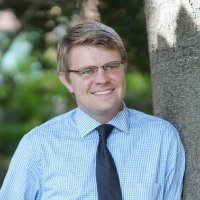 Greg Pulscher joined the Civitas Institute as a development associate in 2015. Since moving to North Carolina from Colorado, Greg established a networking social group in Raleigh devoted to liberty minded individuals, is a contributor to Opportunity Lives and created a podcast called “Free To Brew” tackling the misunderstood and widely criticized world of alcohol using a free market approach.
Greg Pulscher joined the Civitas Institute as a development associate in 2015. Since moving to North Carolina from Colorado, Greg established a networking social group in Raleigh devoted to liberty minded individuals, is a contributor to Opportunity Lives and created a podcast called “Free To Brew” tackling the misunderstood and widely criticized world of alcohol using a free market approach.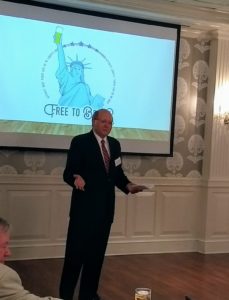
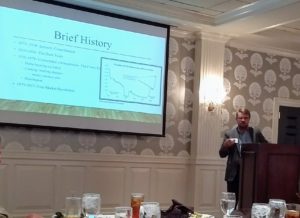
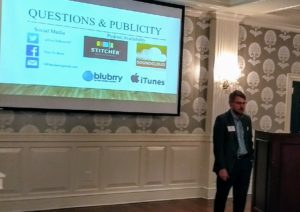
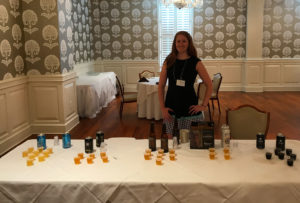
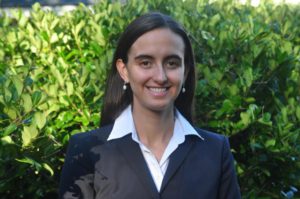 Dr. Beatriz Maldonado is an Assistant Professor of Economics and International Studies at the College of Charleston. Her research in economic development and political economics has appeared in the European Journal of Political Economy, Oxford Development Studies, Applied Economics Letters, and Social Science Quarterly.
Dr. Beatriz Maldonado is an Assistant Professor of Economics and International Studies at the College of Charleston. Her research in economic development and political economics has appeared in the European Journal of Political Economy, Oxford Development Studies, Applied Economics Letters, and Social Science Quarterly. Dr. Todd Nesbit is a Senior Lecturer in Economics and Competitive Markets at The Ohio State University and an Adjunct Scholar at the Mackinac Center for Public Policy. Dr. Nesbit earned dual B.S. degrees in Economics and Mathematics from Capital University in 2001 and then went on to complete his Ph.D. in Economics at West Virginia University in 2005. Dr. Nesbit has authored peer-reviewed professional publications appearing in the Journal of Economic Behavior and Organization, the Southern Economic Journal, and Public Budgeting and Finance, among others. His primary research interest is in public policy issues generally, and excise taxation specifically.
Dr. Todd Nesbit is a Senior Lecturer in Economics and Competitive Markets at The Ohio State University and an Adjunct Scholar at the Mackinac Center for Public Policy. Dr. Nesbit earned dual B.S. degrees in Economics and Mathematics from Capital University in 2001 and then went on to complete his Ph.D. in Economics at West Virginia University in 2005. Dr. Nesbit has authored peer-reviewed professional publications appearing in the Journal of Economic Behavior and Organization, the Southern Economic Journal, and Public Budgeting and Finance, among others. His primary research interest is in public policy issues generally, and excise taxation specifically. 